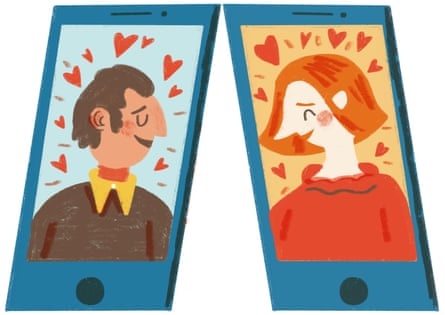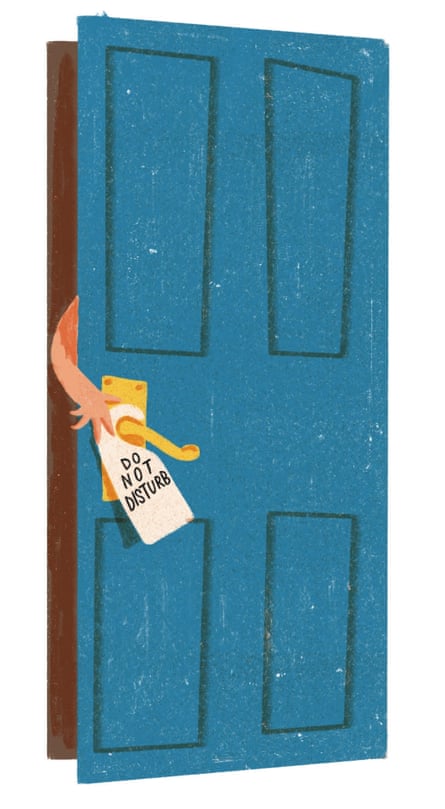From the earliest days of the pandemic, experts anticipated that the stress of Covid-19 would wreak havoc on romantic relationships (and in some cases, they were right). But one recent survey suggests what few people could have predicted: for many of the couples that persevered, the pandemic may have actually improved the relationship.
According to a national poll released in February by Monmouth University, a whopping 70% of romantically committed American adults are “extremely satisfied” in their relationships. This figure marks a more than 11-point increase over previous installations of the survey, which the university has conducted for more than six years.
“We often take a cynical perspective on relationships, which leads us to look for potential problems and see relationships as fragile,” says Dr Gary Lewandowski, a psychologist of romantic partnerships who oversees the annual Monmouth poll.
“The fact is,” Lewandowski continues, “relationships are our rock, providing strength, stability, and ultimately a foundation for resilience, especially when life feels overwhelming.”
In other words, couples don’t stay together (and stay happy) long-term because life is easy. They survive and thrive because their relationship makes them stronger, as a unit. In a time of protracted hardship, that pillar of support is less likely to be taken for granted than it might be amid the ordinary chaos of modern life.
But pandemic or not, no boost in closeness happens automatically. Certain conditions make some relationships more likely to persevere than others. And it turns out that the stakes and circumstances of the pandemic may have created an ideal lab environment for some of those conditions to blossom. The question is whether they’ll survive the transition to a post-pandemic world – and how.
Showing the work
According to Giulia Zoppolat, a PhD candidate in experimental applied psychology who studies romantic relationships, a key element of resilient partnership is perceived partner responsiveness: “[When people] feel that their partner cares and listens to them.”

While Zoppolat admits that the importance of partner attentiveness may seem “very basic”, its impact on relationship satisfaction is powerful. “We see over and over again that this can make a difference,” she says.
Daniel Roque-Coplin, a 25-year-old from West New York, New Jersey, learned the importance of what he calls “intentionality” first-hand. At the beginning of last year’s lockdowns, Roque-Coplin and his girlfriend, who had been together for about a year, quarantined together. But within a few months, the girlfriend’s decision to visit family led to a separate quarantine, launching the pair into a long-distance relationship. Roque-Coplin says that, to his surprise, the hard work of staying connected brought them closer together.
“Living together, you don’t really have a choice about spending time together, and you naturally end up wondering, ‘Does my partner really like me, or do they just have to be here?’” says Roque-Coplin. “Showing that you care on FaceTime feels more tedious, but I realized over time we just really enjoyed talking to each other.”
Latifah Liverpool, a 27-year-old living on the island of Trinidad, made a similar discovery with her boyfriend of seven years – albeit under markedly different circumstances.

Pre-pandemic, she said, the pair’s relationship had revolved around activities: going out, partying, traveling. Extended lockdowns forced the pair to slow down and get to know each other in new ways. An unexpected breakthrough came from watching each other’s favorite TV shows.
“We really started to understand each other more,” says Liverpool. She cites the anime series Boruto – a spinoff of her partner’s childhood favorite, Naruto – as a game changer.
“As he explains the backstory of the show to me, I’ve learned more about his childhood and how his interests developed,” says the formerly anime-indifferent Liverpool. “There’s a greater level of intimacy in that than outside activities.”
Glen Irvin Flores, a 45-year-old from Sauk Rapids, Minnesota, found new ways to show his wife he cared on daily walks together. The physical activity, he says, made it easier for both partners to open up about tough issues.

“I’m a recovering alcoholic, and we were able to spend time talking through and healing through some old emotional wounds in our marriage just by taking time to listen to each other,” says Flores. “We were talking about doing marriage counseling before that, and now we realize we did our own version of that on walks.”
The gift of time
Despite the many stressors that the pandemic introduced, lockdowns and social distancing provided a reprieve from the hectic pace of ordinary life. Suddenly, people were afforded more quality time with their partners than they may have ever had before – which probably contributed to more intimacy in relationships.
“Quality time to connect is almost a reminder of why you’re in the relationship in the first place, that this is the person you’ve chosen,” says Shemiah Derrick, a Chicago-based couples therapist. “If you don’t prioritize spending that time together, it’s easy to lose that connection.”
For Paty Portilla, who is 44 and based in southern California, that meant more time spent with her wife and (usually) busy teenage daughter, “sitting around the table, sharing meals and talking without distractions”.

The ritual not only brought the trio closer together but created new intimacy between the spouses. “For the first time, we were sharing the same experiences with her, together,” Portilla says. “It built a closer bond between us as a couple, because I saw how much my wife cared about my daughter.”
Rachel Dillin, 43, from Stillwater, Oklahoma, said she hadn’t known what to expect when her husband first set up at the kitchen table to work from home in March 2020. But the pair soon realized they were better off without work commutes and kids’ activities. “We were better rested, so we could connect deeply every day instead of scrambling to plan elaborate date nights every once in a while,” Dillin says.
One afternoon, when they had a lull in their work, Dillin and her husband “slipped quietly into the bedroom for some personal adult time”, she recalls. One sexy afternoon turned into two, and before they knew it, the couple had a standing appointment.

“Honestly,” says Dillin, “it was fantastic.”
Facing the return to ‘normal’
Now that the country is reopening, couples are faced with a new challenge: how to maintain those good feelings without the unique constraints that allowed them to flourish in the first place.
According to Derrick, rituals – like Dillin’s standing sex date – can help keep the flame lit. But fitting those things into post-lockdown schedules might require some flexibility. “The time you find together might look or feel different on different days, but the important thing is you make growing the relationship squarely your responsibility,” she says.
For Flores and his wife, that has meant committing to their daily walks and conversations. Portilla, on the other hand, reports that with her daughter now off to college, she and her wife are finding new ways to build on the closeness they established over the last 16 months.
As for Roque-Coplin and his girlfriend, the pandemic wasn’t so much a one-time relationship boost as an intensive rehearsal for the stressors of real life. They plan to move in together soon, and are thinking long-term.
“It was a tough year,” he says, “but also a really nice trial run for our lives together going forward.”
